|
Home Machine Tool Archive Machine-tools for Sale & Wanted Books Accessories Derbyshire Home Page Magnus Lathe Elect Lathe Model 750 Model A Micromill Derbyshire Precision Drill Derbyshire Collets Pinion Cutter |
|
Largest of the Derbyshire Precision Lathes, the Models 750 and A (both still current) shared many accessories and parts - but the two machines, though so similar in appearance and function, did differ significantly enough for the makers to advertise them separately. Almost certainly developed from the Gilman lathe (their story can be found here), the 750 was usually shown in a production set up, and the A (more frequently) as a toolmakers' version with a compound slide rest and with the prices set differently. In 1970, for example, the basic bed and headstock for an A cost $579 but that for a 750 was $495; a ball-bearing Model A headstock was $384, for the 750 it cost $300; a complete cone-bearing headstock for a Model A was listed at $325 whilst for a 750 the price dropped to $208, a huge difference. The result was that a complete bed and headstock assembly, fitted with a lever or hand-action collet closer - and ready to take any of the identical (and commonly priced) accessories - tailstocks, slides rests, etc. - cost $695 as a Model 750 and $800 as a Model A. |
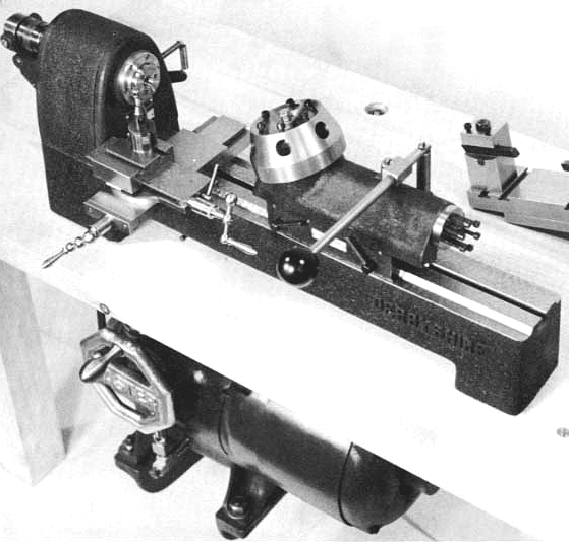
|
An early 1950s Model 750 with a beautiful (but less expensive than nickel plate) crackle-black paint finish. The centre height was 7.5 cm, (giving a swing of 67/8") and the bed 22" long - with a between-centres' capacity of 12". The spindle on the model illustrated is of the 12,000 rpm ball-bearing type and fitted with a with a Spring-bind brake assembly which simultaneously stropped the spindle and opened the collet. |
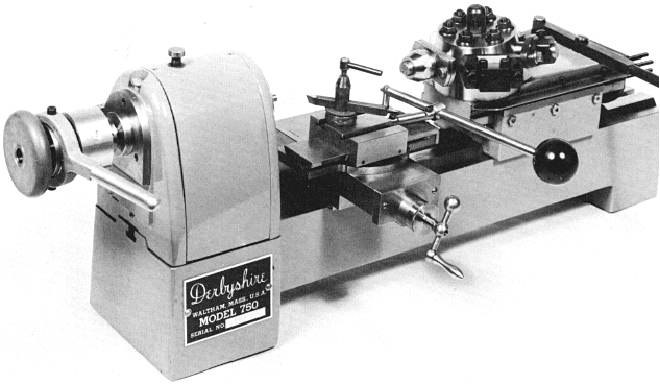
|
A Model 750 from 1969 fitted with a quick-action collet closer, screw and lever-feed compound slide rest and a 6-station capstan unit. |
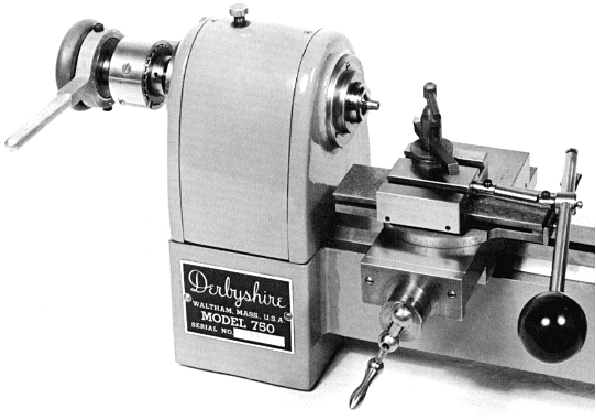
|
|
||

|
A 1970s Model 750 with ball-bearing headstock spindle (#3804) on the maker's steel cabinet stand (#3860) and fitted with a 6-station Turret (#3610), Double Compound all-lever-feed Slide Rest (#)3652 and driven by an electronically-controlled, infinitely variable-speed motor (#10245). |
||
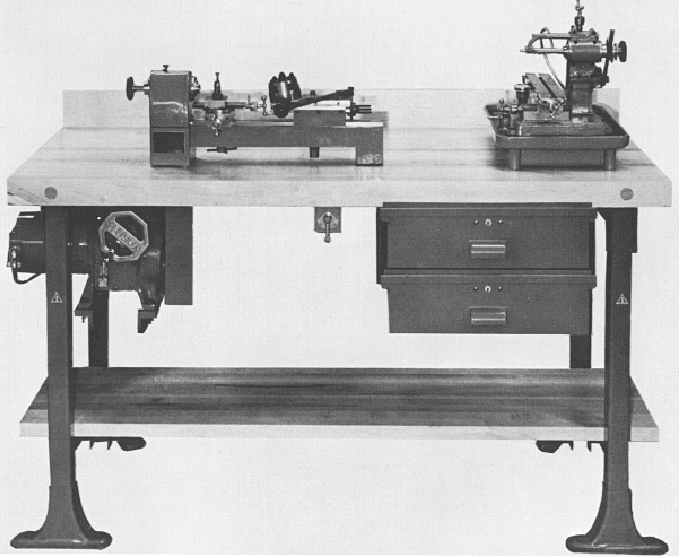
|
A rather desirable assembly - a wider view of that illustrated on the main 750 page. |
||
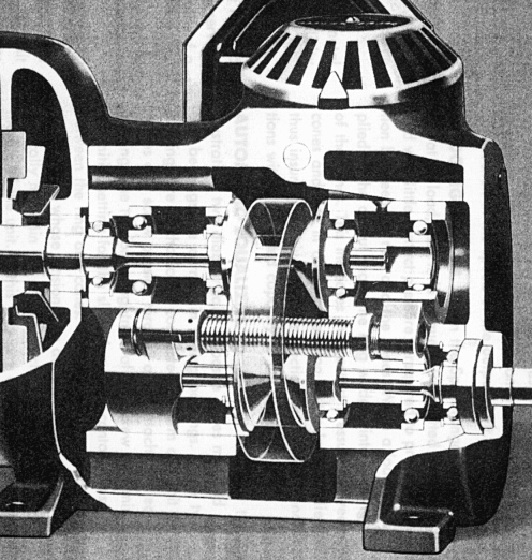
|
|
||
|
Home Machine Tool Archive Machine-tools for Sale & Wanted Books Accessories Derbyshire Home Page Magnus Lathe Elect Lathe Model 750 Model A Micromill Derbyshire Precision Drill Derbyshire Collets Pinion Cutter are available for Derbyshire lathes. |